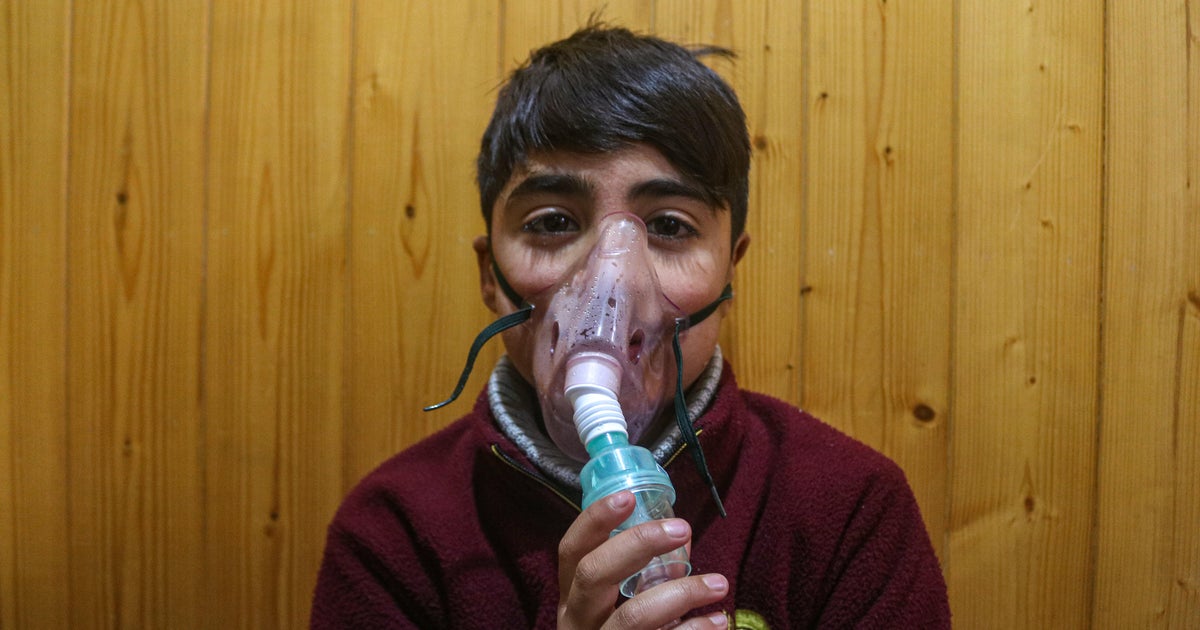7-year-old boy from Virginia dies from flu, family says
A 7-year-old from Southwest Virginia may be the latest victim of this year's deadly flu season. The Virginia Department of Health (VDH) has confirmed the death of Kevin Baynes Jr., CBS affiliate WTVR reports.
According to a GoFundMePage set up by the child's family, Kevin "passed away from the flu and strep throat."
Officially, the death is being investigated by the Medical Examiner and the official cause of death could be determined "soon," Danville/Pittsylvania region VDH Director Dr. Scott Spillmann told CBS affiliate WDBJ.
If the child's flu death is confirmed, he would be the first child in Virginia to die from flu this season. So far, the Centers for Disease Control and Prevention have reported 37 pediatric deaths from flu this season.
According to WDBJ, Kevin was sent home from school Friday after vomiting and falling asleep in class.
"He says mommy, mommy, I don't feel good so I cuddled him," Kevin's mother, Samantha Baynes, told WDBJ on Monday.
By Saturday morning, he was unable to walk or keep food down. Baynes said she took her son to the emergency room where he was diagnosed with strep throat and the flu.
Doctors sent him home with medication to treat the infection.
"We tried to give him the medication and everything we were supposed to do and he just wasn't getting any better," Baynes said.
Kevin's older sister found him unresponsive on Sunday morning. He was taken to the hospital, where he was pronounced dead.
While the flu can turn deadly for anyone, it is most dangerous for young children and older adults. It is possible to die from flu itself due to breathing problems and severe dehydration, experts say, but it's more likely that a complication from the infection will be the cause of a flu-related fatality. Complications can include bacterial pneumonia, sepsis, and infections of the heart or brain.
Children are particularly vulnerable to the flu for a number of reasons, explains Dr. Claire Bocchini, an infectious disease specialist at Texas Children's Hospital.
First, children are more likely to be exposed to the flu since it spreads easily among people in close contact with each other, such as when children play with one another at day cares and schools.
"Second, children have smaller airways that are at higher risk of having damage from the flu virus which increases the risk of pneumonia," Bocchini told CBS News. "Children are also more likely than adults to have vomiting and diarrhea from the flu – which can lead to dehydration."
Finally, children's immune systems are still developing and frequently lack experience with the flu virus.
"An adolescent or young adult has a more mature immune system that has likely responded to flu vaccines or to an infection from the flu in the past," Bocchini said. "This experience allows the immune system to better protect the body from severe influenza infection and from complications from influenza."
According to the CDC, emergency warning signs in children include:
- Fast breathing or trouble breathing
- Bluish skin color
- Not drinking enough fluids
- Not waking up or not interacting
- Being so irritable that the child does not want to be held
- Flu-like symptoms improve but then return with fever and worse cough
- Fever with a rash
If you or your child have these symptoms, it is important to get medical treatment right away.
In light of the tragedy that struck her family, Samantha Baynes has a message for other parents: "Watch your children closely. Don't hesitate to go to the emergency room. No matter what time it is day or night, just take them."



